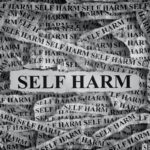
Amelia Talbot looks at a recent qualitative study of patient and carer perspectives, which explores the reasons why some patients do not receive a psychosocial assessment in emergency departments following self-harm.
[read the full story...]
Amelia Talbot looks at a recent qualitative study of patient and carer perspectives, which explores the reasons why some patients do not receive a psychosocial assessment in emergency departments following self-harm.
[read the full story...]
Katherine Chartes reviews a cohort study comparing risk of repeat self-harm after psychosocial assessment, which suggests that psychosocial assessments can reduce re-attendance by 30% within a 12-month timeframe.
[read the full story...]
Katrina Witt explores a recently published paper that draws on the Multicentre Study of Self-Harm in England. The cohort study found that around one-half of self-harm patients do not receive psychosocial assessment, despite 2004 NICE guidance that recommends everyone who has self-harmed should have a comprehensive assessment of needs and risk.
[read the full story...]
The period after giving birth to a child can be difficult for women and in the first twelve weeks after childbirth 13-19% of women will experience post-partum depression (O’Hara 1996, Gaynes 2005). Post-partum depression is bad news – not only does it increase the chance of the mother going onto develop a severe clinical depression [read the full story…]

Last September I blogged about a cohort study in the Lancet that highlighted the links between self-harm and poor physical health. This same dataset (drawn from over 30,000 patients from 6 hospitals in Oxford, Manchester and Derby from 2000-7) has now spawned a longitudinal study published in the European Child and Adolescent Psychiatry journal. This [read the full story…]